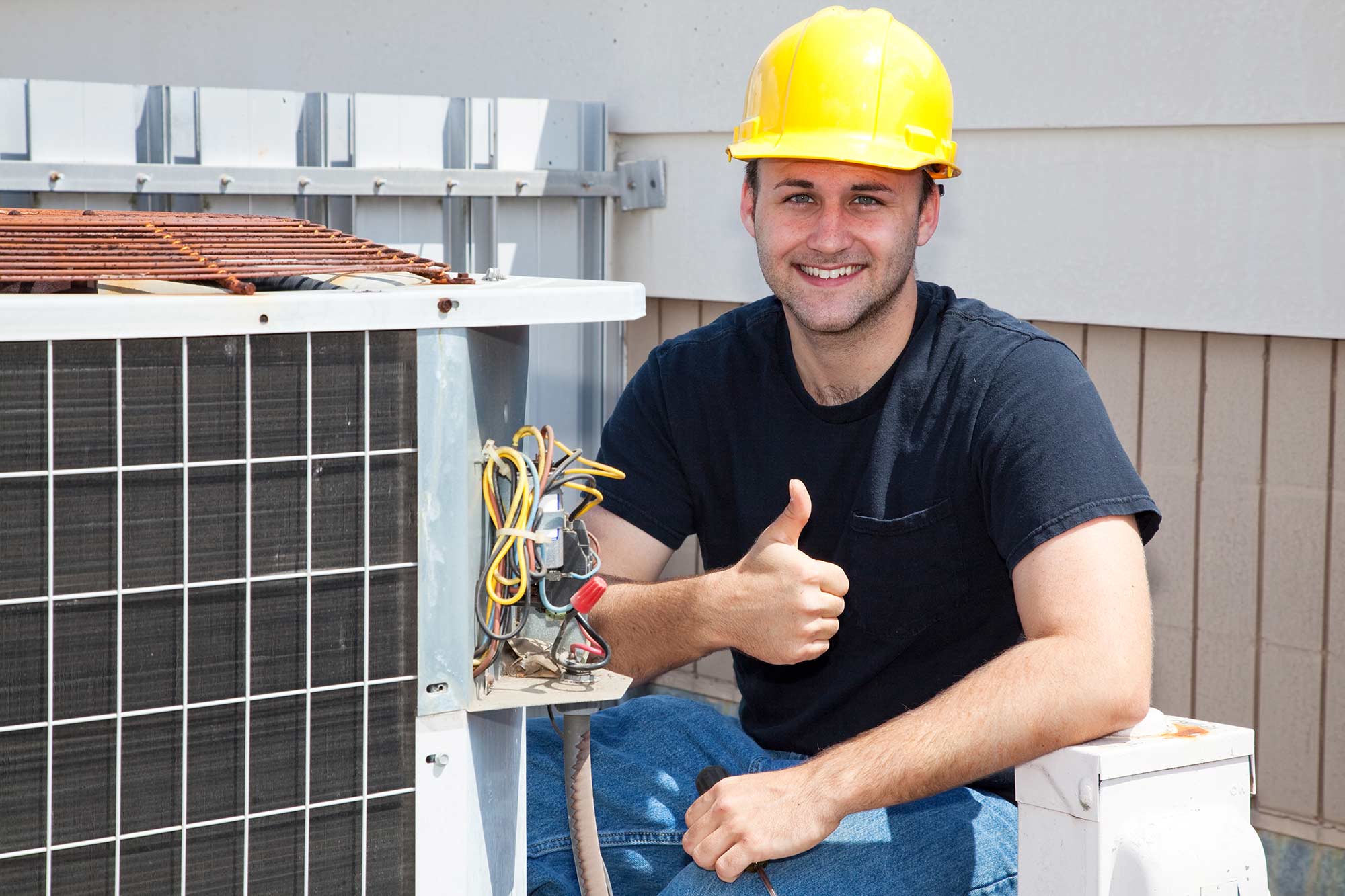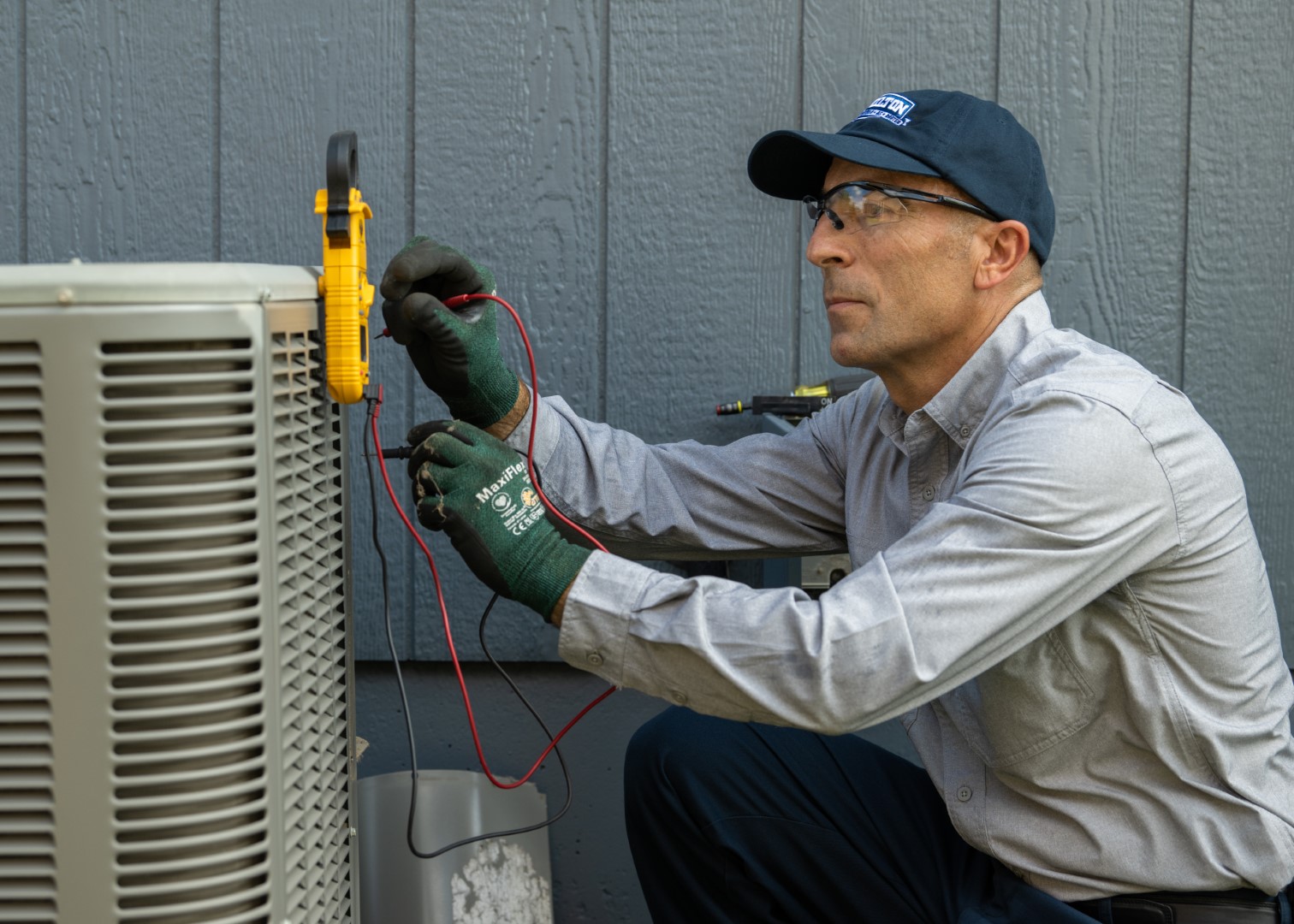How to choose the right HVAC company for long-term reliability
All Concerning Cooling And Heating: Identifying Common Issues and Effective Air Conditioner Fixing Methods
A/c systems are important for preserving interior comfort. Understanding their components and functionality is essential for identifying typical issues. Property owners often face issues such as inadequate air conditioning, odd odors, or rising power prices. These signs can show underlying issues that may require interest. Exploring do it yourself troubleshooting methods can be helpful, however knowing when to look for professional help is equally vital. What actions can be required to ensure resilient efficiency?
Understanding Your A/c System: Parts and Functionality
A HVAC system, usually thought about the backbone of interior environment control, consists of several crucial components that collaborate to control temperature level and air high quality. The primary aspects consist of the home heating device, ventilation system, and cooling unit. The home heating device, generally a furnace or boiler, creates warmth throughout chillier months, while the air conditioning device cools interior rooms throughout the summer.

Common Heating And Cooling Troubles House Owners Experience
Homeowners typically face numerous typical HVAC troubles, consisting of irregular temperature level distribution throughout their space. Furthermore, uncommon noises throughout operation can show underlying issues that require focus. Dealing with these problems immediately is important for preserving excellent system performance.
Inconsistent Temperature Circulation
Many homes experience the irritating issue of inconsistent temperature level circulation, where certain spaces really feel uncomfortably warm while others stay also cold. This problem commonly emerges from a variety of aspects, consisting of poor insulation, blocked vents, or an incorrectly sized HVAC system. When ducts are not effectively secured or when furniture obstructs airflow, some areas may get inadequate air conditioning. Additionally, thermostat positioning can considerably influence temperature level policy; a thermostat located in a sunlit area might misstate the overall temperature of your house. Routine upkeep, consisting of cleansing filters and ensuring ductwork is clear, can help ease these inconsistencies. House owners might additionally take into consideration zoning systems to better control temperature levels throughout various locations of the home, advertising an extra comfy living atmosphere.
Uncommon Noises During Operation
When an a/c system operates, unusual sounds can show underlying problems that require attention. Home owners might run into a series of noises, such as grinding, squeaking, or hissing. Grinding sounds often signify worn-out bearings or parts, while squealing can suggest loosened belts or parts requiring lubrication. Hissing might suggest a cooling agent leakage, which can compromise the system's efficiency. In addition, banging audios could indicate loosened ductwork or a problem with the blower fan. Each of these sounds offers as a warning, motivating home owners to check out even more. Disregarding these signs can bring about even more significant troubles and expensive repairs. Normal maintenance and punctual interest to uncommon sounds can enhance system long life and performance, making sure a comfortable living atmosphere.
Signs That Indicate Your Air Conditioner Requirements Repair Work
Exactly how can one inform if their cooling device wants repair? A number of indicators may suggest underlying problems needing professional attention. If the AC fails to cool down the space efficiently, it might suggest a refrigerant leak or compressor malfunction. In addition, an increase in power costs without corresponding usage adjustments could indicate inefficiency in the system. Homeowners should additionally look out to unusual smells originating from the unit, which could suggest mold and mildew growth or electric issues. Additionally, if the AC frequently cycles on and off, it may be an indicator of a faulty thermostat or other mechanical issues. Lastly, the existence of water pooling around the system can suggest a blocked drain line. Identifying these indicators early can conserve money and time, guaranteeing that the cooling system operates successfully and effectively.
Do It Yourself Troubleshooting Techniques for Cooling And Heating Issues
When encountering cooling and heating concerns, house owners click to find out more can use a number of do it yourself troubleshooting strategies to determine the issue. Key methods consist of inspecting thermostat settings, examining air filters, and evaluating water drainage concerns. These actions can aid identify common malfunctions prior to seeking specialist help.
Inspecting Thermostat Setups
What steps should homeowners require to ensure their thermostat settings are proper? Initially, they must verify the thermostat is established to the preferred temperature level and setting, whether heating or air conditioning. Looking for a clear display screen and verifying the thermostat is not established to "hold" or "vacation" setting is important. Home owners must additionally confirm that the thermostat is degree and mounted in a location without drafts, straight sunshine, or various other temperature influences. Additionally, recalibrating the thermostat can assist supply exact analyses. If the thermostat operates batteries, changing them may fix any kind of concerns. By systematically evaluating these variables, home owners can usually identify and correct thermostat-related issues, advertising suitable a/c system efficiency.
Inspecting Air Filters
Air filters play an essential function in maintaining optimal cooling and heating performance. They trap dirt, irritants, and other fragments, ensuring clean air blood circulation. With time, filters can become blocked, minimizing air flow and performance. To examine air filters, people must initially locate the filter, often located in the return air duct or near the heating system. As soon as situated, they should evaluate the filter's condition-- if it appears dirty or stained, it likely needs replacement. Most filters need changing every 1-3 months, depending on usage and environmental aspects. Normal evaluation and prompt replacement of air filters not only improve air quality but also prolong the life-span of HVAC systems, protecting against potential malfunctions and pricey fixings.
Reviewing Drain Issues
Exactly how can property owners efficiently identify and resolve water drainage issues within their a/c systems? They ought to inspect the condensate drainpipe line for clogs or clogs, which can lead to water build-up. Property owners might utilize a wet/dry vacuum to get rid of any particles blocking the line. Next, examining the drainpipe pan for corrosion or leaks is necessary, as a damaged pan can create water to overflow. Routine cleaning of the drainpipe line with a mixture of vinegar and water aids avoid future clogs. In addition, guaranteeing proper slope of the drainpipe line promotes effective water flow. If these do it yourself methods do not deal with the concern, getting in touch with an expert HVAC technician might be necessary to stay clear of potential water damage and system failing.
When to Call a Professional for Air Conditioner Repair Services

While some a/c concerns can be dealt with with do it yourself methods, there are circumstances where calling a specialist becomes vital. Home why not try here owners must seek expert help when they run into persistent problems, such as insufficient air conditioning, weird sounds, or unusual odors emanating from the unit. These symptoms may indicate deeper issues that require specialized knowledge and tools to diagnose and fix appropriately.

Preventative Upkeep Tips for HVAC Longevity
Routine preventative maintenance can considerably boost the long life of HVAC systems. Property owners ought to schedule annual evaluations by certified service technicians to examine system efficiency and recognize possible concerns. Consistently changing or cleaning air filters is essential, as this warranties correct air movement and decreases strain on the system. Additionally, examining and securing ductwork prevents energy loss and boosts total efficiency.
It is likewise a good idea to maintain the outdoor unit free from particles and plant life, enabling peak air movement and warmth exchange. Homeowners should inspect the condensate drain for clogs to stay clear of water damages and mold and mildew growth. Keeping appropriate thermostat setups and utilizing programmable alternatives can enhance energy performance. Lastly, documenting maintenance tasks helps track service background and can assist in identifying recurring concerns (Fix broken Air conditioner). By adhering to these preventative steps, people can optimize the efficiency and life expectancy of their cooling and heating systems
Often Asked Inquiries
How Often Should I Replace My A/c System Filters?
Cooling and heating system filters ought to commonly be replaced every one to 3 months, relying on usage, filter type, and ecological variables. Regular replacement aids maintain performance and air high quality, guaranteeing peak system performance throughout the year.
What Dimension Cooling And Heating System Do I Required for My Home?
To establish the ideal cooling and heating system dimension for a home, one must consider square footage, insulation top quality, and neighborhood environment. Consulting an expert can assist ensure maximum efficiency and comfort for the details living room.
Exist Eco-Friendly A/c Options Available?
Yes, environment-friendly a/c choices are available, including energy-efficient heatpump, solar-powered systems, and geothermal heating. These alternatives lower power usage and environmental impact, promoting sustainability while keeping efficient climate control for household and business rooms.
Exactly How Can I Boost My cooling and heating System's Energy Performance?
To enhance HVAC energy performance, one can regularly maintain the system, seal air leakages, mount programmable thermostats, utilize energy-efficient filters, and guarantee ample insulation throughout the home to minimize energy intake and boost performance.

What Is the Typical Life-span of a Cooling And Heating System?
The average life expectancy of a heating and cooling system usually ranges from 15 to 25 years, depending on aspects such as upkeep, use, and the quality of installment. Regular maintenance can considerably prolong its functional long life.
Verdict
In recap, a detailed understanding of heating and cooling systems encourages homeowners to determine typical concerns and address small issues effectively. Recognizing signs of breakdown, using DIY fixing strategies, and prioritizing routine upkeep can enhance system efficiency and effectiveness. When encountered with intricate fixings, enlisting professional assistance is essential to ensure safety and durability. By promoting awareness and positive care, people can appreciate a comfortable interior atmosphere while reducing unforeseen expenses related to cooling and heating failures.